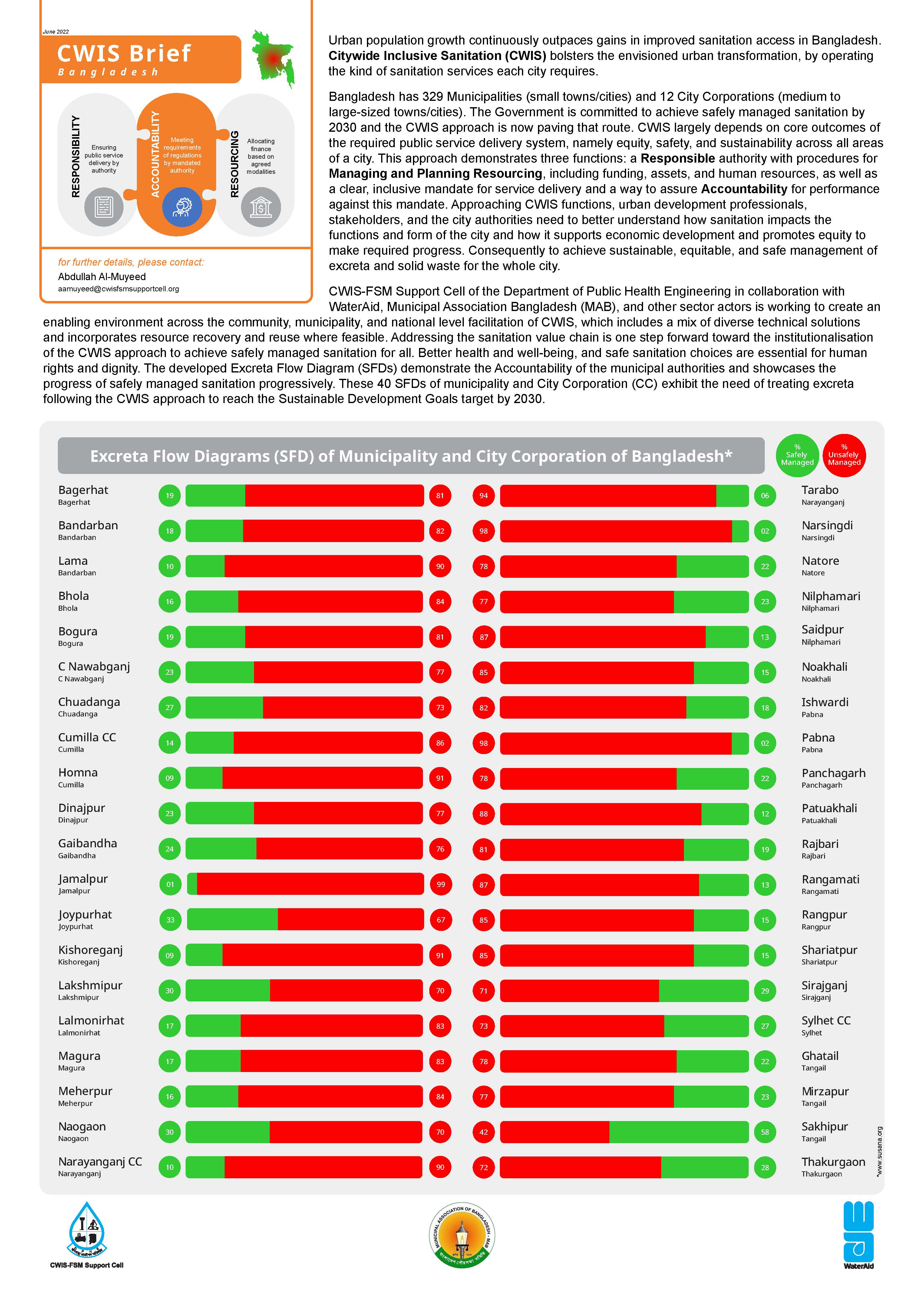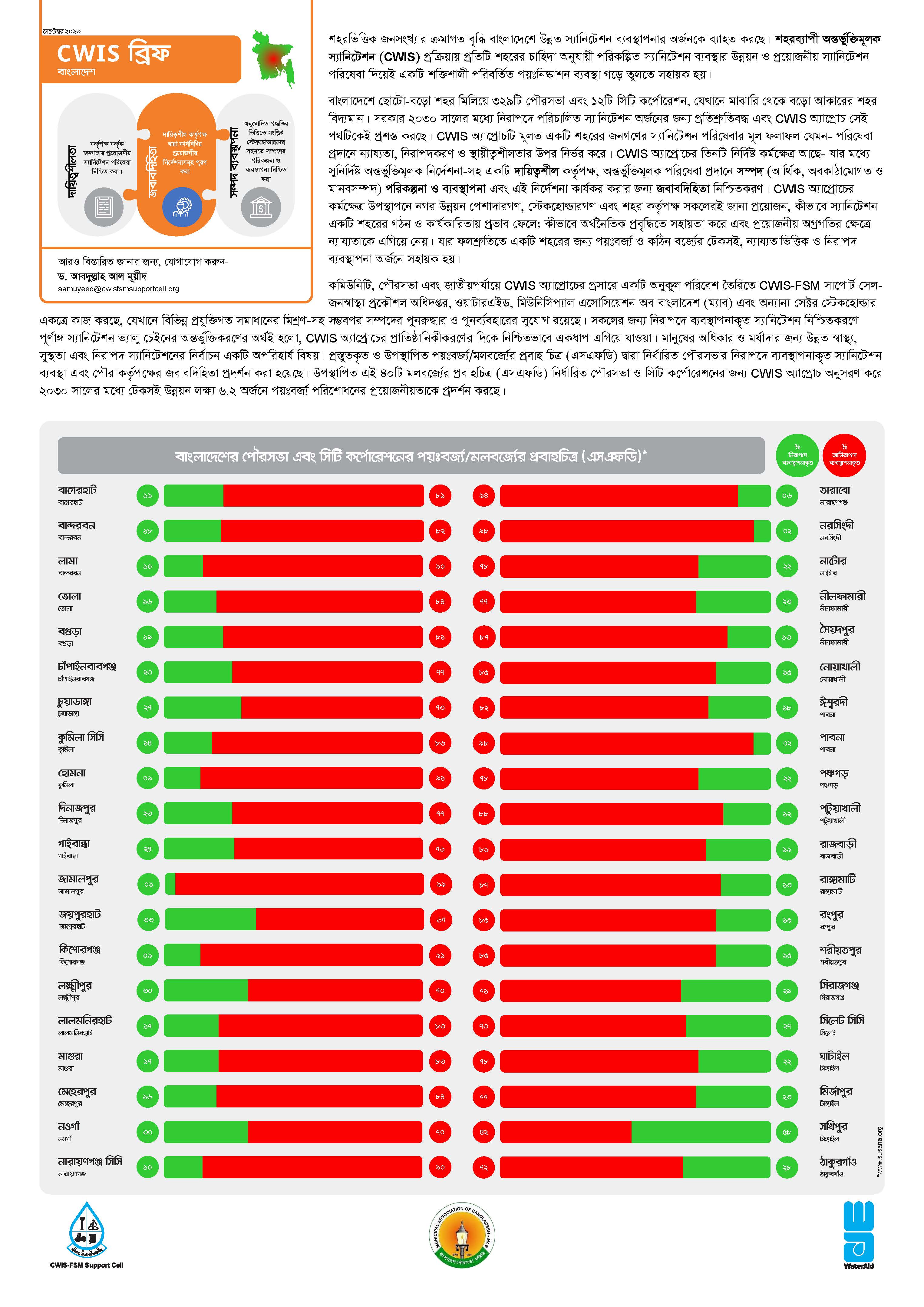CWIS Brief Bangladesh
Publisher(s): Department of Public Health Engineering (DPHE), WaterAid Bangladesh

Category(s): Handbook/Guidebook
Language: English
Publication Year: 2024
Document Type: PDF
Bangladesh has 329 Municipalities (small towns/cities) and 12 City Corporations (medium to large-sized towns/cities). The Government is committed to achieve safely managed sanitation by 2030 and the CWIS approach is now paving that route. CWIS largely depends on core outcomes of the required public service delivery system, namely equity, safety, and sustainability across all areas of a city. This approach demonstrates three functions: a Responsible authority with procedures for Managing and Planning Resourcing, including funding, assets, and human resources, as well as a clear, inclusive mandate for service delivery and a way to assure Accountability for performance against this mandate. Approaching CWIS functions, urban development professionals, stakeholders, and the city authorities need to better understand how sanitation impacts the functions and form of the city and how it supports economic development and promotes equity to make required progress. Consequently to achieve sustainable, equitable, and safe management of excreta and solid waste for the whole city
Copyright
This is an open access work distributed under the terms of the Creative Commons Attribution License, which permits unrestricted use, distribution, and reproduction in any medium, provided the original work is properly cited.
Bangla Version
CWIS ব্রিফ
Publisher(s): Department of Public Health Engineering (DPHE), WaterAid Bangladesh
- Language:Bangla

No comment yet.